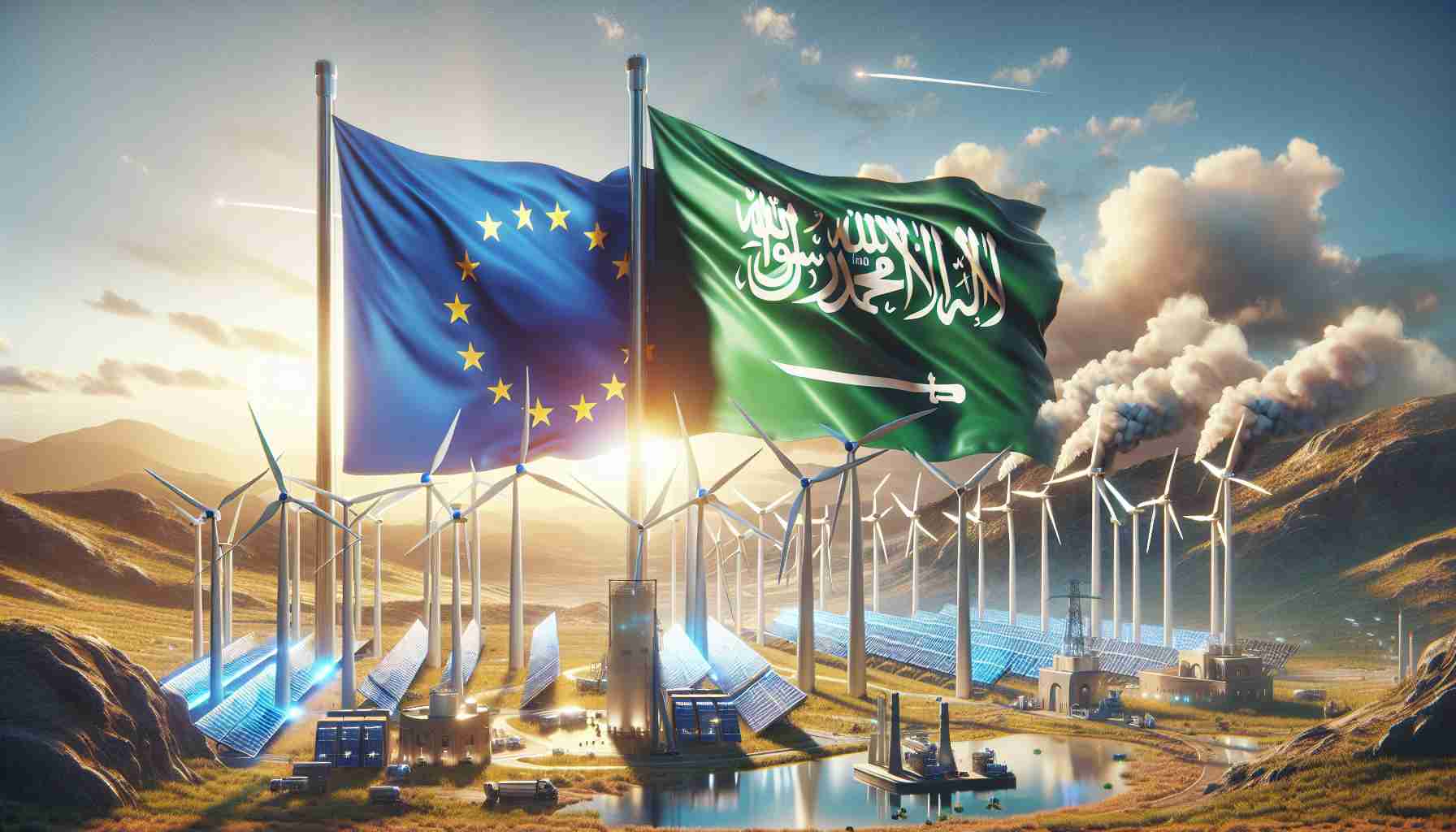Saudi Arabia and the European Union are embarking on a promising collaboration to transform the global energy landscape. During the World Economic Forum in Riyadh, high-ranking officials from both sides, including EU Energy Commissioner Kadri Simson and Saudi Energy Minister Abdulaziz bin Salman Al Saud, discussed the potential of a groundbreaking partnership focused on renewable energies.
This strategic dialogue sets the stage for a potential Memorandum of Understanding (MoU) that aims to boost investments in clean technologies. The initiative is not only about financial collaboration but also involves joint efforts with public and private entities to establish a robust framework for sustainable energy. By ensuring energy security and affordability, the partnership envisions a greener future with reliable access to energy for everyone.
The European Union reaffirms its dedication to the global energy transition. Key objectives include adherence to COP28’s call for reduced fossil fuel reliance and an ambitious target of reaching 11,000 GW of global renewable energy capacity by the decade’s end. Saudi Arabia, determined to enhance its renewable capacities, has notably increased its energy production to 2,800 MW in 2023.
This cooperative endeavor highlights a new beginning for Saudi Arabia and the EU, as they aim to pioneer renewable energy advancements. With their combined efforts, they are setting a powerful precedent in promoting a sustainable and environmentally responsible energy sector, promising a brighter and more sustainable future for generations to come.
The Bold Move: Saudi Arabia and EU’s Energy Partnership Paves New Paths for Humanity
In a rapidly changing world where the future of energy becomes increasingly pivotal, Saudi Arabia and the European Union are spearheading a transformative venture. While many eyes are on this recently announced collaboration aiming to harness the prowess of renewable energy, there are uncharted elements to this partnership that could change the game for humanity and technological advancements.
Technological Crossroads: Advancements Beyond Green Promises
While the world focuses on renewable energy, one intriguing aspect stands out—this collaboration could set the stage for cutting-edge innovations in technology. It’s not simply about increasing the number of solar panels or wind turbines but about integrating advanced technology like AI and IoT into the energy sector. Imagine a future where energy grids are smart enough to balance loads and optimize use in real-time, potentially reducing waste and improving efficiency – this partnership could make it a reality.
Interesting Facts and Controversies
1. **Creative Energy Storage Solutions**: A notable direction this partnership could take is the development of innovative energy storage systems. These systems are crucial for tackling one of renewable energy’s biggest challenges—variability. Could we soon see the advent of ultra-efficient, eco-friendly battery technology?
2. **Geopolitical Implications**: Saudi Arabia’s growing alliance with the EU might shift the geopolitical energy balance. As both entities invest heavily in renewables, it may challenge traditional fossil fuel-heavy relationships and foster new economic ties.
3. **Criticism and Controversy**: Not all voices are in favor. Skeptics question whether this partnership can adequately address existing emissions without inadvertently boosting fossil fuel dependencies through transitional fuels. Is the promise of renewables being used only as a greenwashing tool?
Impact on Humanity: Pros and Cons
**Advantages**:
– **Diversification of Energy Sources**: By broadening the focus from traditional energy sources, this venture strengthens global energy security and increases resilience against price volatility.
– **Economic Growth**: New industries sprouting from advanced renewable technologies create a plethora of job opportunities, propelling economic growth and fostering innovation.
**Disadvantages**:
– **Initial Investment Costs**: Shifting to renewable solutions requires substantial upfront investment, which might strain finances and budgets before the long-term benefits materialize.
– **Energy Inequality**: There is a risk of widening the gap between nations able to afford new technologies and those that cannot.
Food for Thought: Posing Key Questions
– **Can Renewable Energy Truly Replace Fossil Fuels?** While optimistic projections abound, the scalability and sustainability of renewables in meeting global demands remain central questions.
– **What Role Will Policy Play?** Effective policies will be critical. Without supportive legislation, technological advancements may stall. Will this partnership inspire other regions to adopt similar progressive policies?
To learn more about renewable energy advancements and global initiatives, visit the International Energy Agency for comprehensive insights.
As Saudi Arabia and the EU forge this promising path, they’re not just investing in cleaner energy; they are investing in the very fabric of future civilization. As we stand on the brink of potential breakthroughs, the world watches with anticipation.
